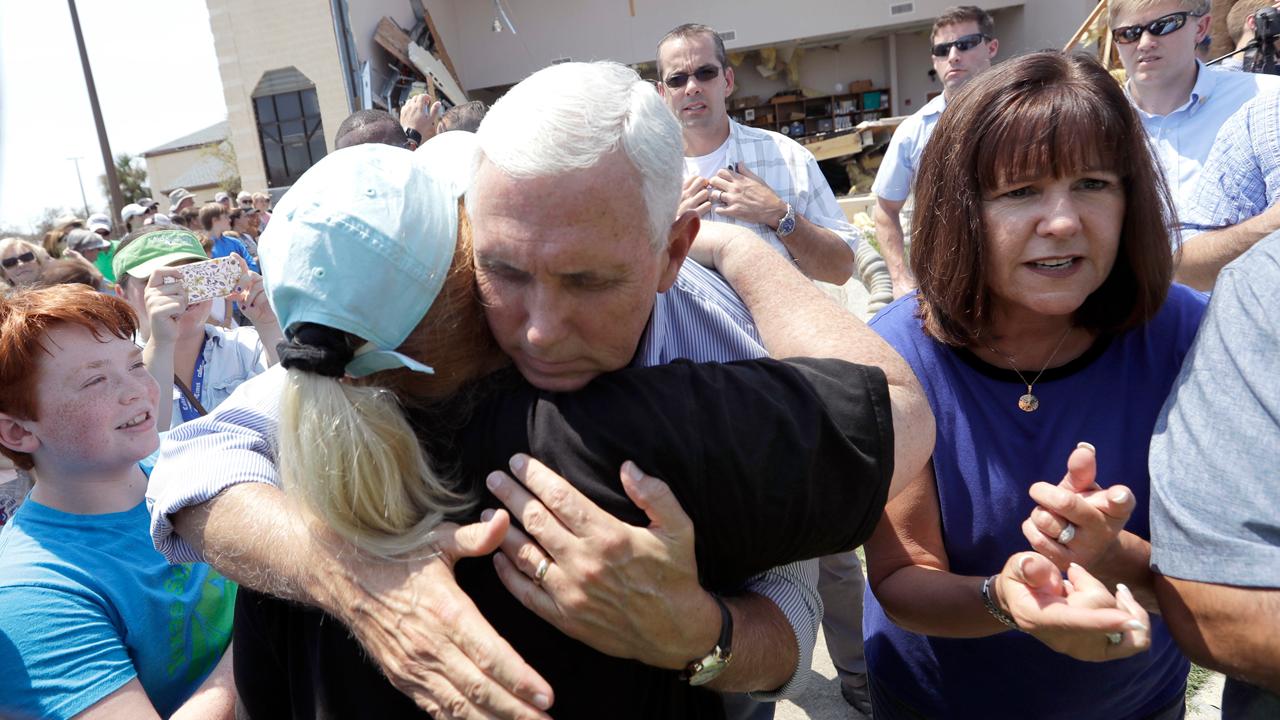Hurricane Harvey victims hang hopes on FEMA response
Nearly a week after Hurricane Harvey swamped her home in northeast Houston, Mimi Wilson is pondering how to start a new life with nothing - no house, no car and no paycheck after missing work.
She has applied for assistance from the Federal Emergency Management Agency (FEMA). Her priority: moving her two young daughters out of the shelter at Houston's convention center.
"We're just waiting on our hotel voucher," she said. "I need to make a home for my children."
FEMA's response to tens of thousands of storm victims such as Wilson will be closely watched as the agency continues to repair an image badly damaged more than a decade ago in the aftermath of Hurricane Katrina.
The agency was accused of being slow to respond to victims in New Orleans and bungling delivery of basic services such as housing.
Congressional reforms followed and further changes were made after Superstorm Sandy in 2012. Some say the improvement is noticeable.
"We found that FEMA has made a ton of progress since Katrina and Sandy," said Chris Currie, director of emergency management and national preparedness issues at the Government Accountability Office, an independent, nonpartisan government watchdog agency.
"If you look back at Katrina, FEMA's role was much more reactionary. In this case (Harvey), they have been able to pre-deploy assets before the full disaster strikes."
As of Friday morning, more than 103,000 individuals and households had been approved for FEMA assistance worth more than $66.4 million, the agency said in a press release.
Of that amount, $9.5 million had been approved for housing assistance for victims, mainly for help with rent of up to $2,000 a month. Victims are also eligible for a one-time payout of $500 to cover "critical needs" such as diapers, infant formula, food and fuel.
FEMA makes emergency grants available as soon as a hurricane or other catastrophe is declared a disaster by the U.S. president. The agency can offer as much as $30,000 per household, but most payments are much smaller.
The average payout to Hurricane Katrina victims was $7,114. For Sandy it was $8,016. Those sums might seem modest for victims who have lost everything. But the aid is intended to be temporary, said Rafael Lemaitre, former public affairs director for FEMA until January 2017.
The grants "are not designed to make lives whole again. It's a life vest. It is designed to help the most vulnerable get back on their feet," he said.
Lemaitre said one of the big changes since Katrina is that FEMA is more pro-active in getting help to people faster. Victims can sign up online via FEMA's new app. The agency also sends teams out into shelters to register people on the spot.
Oversight has also been toughened to combat abuses, according to Currie of the GAO. He said around 20 percent of Katrina payouts were lost to fraud and abuse, a rate that was lowered to the 2 percent to 6 percent range with Sandy.
"A lot of it has to do with technology; you apply on-line, or with a mobile phone," Currie said. "There is more technology available to make sure the money is going to the right people and verify who it is supposed to go to."
Some Harvey victims say this heightened scrutiny is making their shattered lives even more difficult.
At the Houston convention center shelter, a 59-year-old man who would only give his first name, Tyrone, said FEMA has denied him assistance because he does not own the flooded home where he lives; it is still in the name of his mother, who died 18 months ago.
Tyrone said he could not retitle it in his name because his mother left the house to all six of her children. He cannot see any other solution than to live in a flood-damaged dwelling.
"I'm in some kind of bind," he said. "I don't think it's fair."
Houston resident Jesse Salas had better luck. He had come to the convention center specifically to apply for FEMA assistance. His home did not flood, but a power surge in his neighborhood had destroyed all his appliances, he said, and he had lost a week's employment as a construction worker.
Salas said representatives from FEMA told him he would be compensated for both losses after an inspector came to his home to confirm the appliances were broken.
FEMA also offers victims low-interest loans from the Small Business Administration for up to $250,000 to repair or rebuild dwellings and $100,000 for property damage.
Currie said Harvey will be the first major trial for changes made to quicken response times.
"Harvey is going to be a test of the capacity of the program and the speed," he said.
More challenges for the agency are ahead.
Paul Rosenzweig, former deputy secretary of the Department of Homeland Security , said a critical juncture will be four or so weeks from now when the focus turns from short-term aid to long term assistance.
"In the next four weeks there are people who are going to be homeless forever. The real thing that went wrong in Katrina was not being well prepared for that," he said. "Harvey is going to create a bigger problem. There will be more people dislocated for longer periods of time and it cannot become be a long term federal responsibility."
(Reporting By Valerie Volcovici in Washington and Brian Thevenot in Houston; Editing by Marla Dickerson)




















